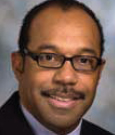The second annual JADPRO Live: Transforming Oncology Practice was held October 30 to November 2 in Orlando, Florida. The conference drew nearly 400 nurse practitioners, physician assistants, clinical nurse specialists, advanced-degree nurses, hematology/oncology nurses, pharmacists, and physicians.
A meeting of the Journal of the Advanced Practitioner in Oncology, JADPRO Live was held in conjunction with the first annual meeting of the Advanced Practitioner Society for Hematology and Oncology (APSHO)—a newly formed society for nurse practitioners, physician assistants, pharmacists, clinical nurse specialists, and advanced degree nurses.
Diverse Educational Program
The 4-day interactive, educational program included 25 sessions on such diverse topics as bone marrow aspiration, lumbar puncture, Ommaya reservoir placement, punch biopsy, and suturing (a hands-on skills workshop); genetics and BRCA mutations; infection management; pain management; cardiotoxicity; avoiding common drug interactions and reactions; and an update on oncology drugs. The conference also presented Grand Rounds lectures on several cancers, including non-Hodgkin lymphoma; chronic myelogenous leukemia; chronic lymphocytic leukemia; basal cell carcinoma; gynecologic malignancies; and lung, prostate, and breast cancers.
The Grand Rounds discussion on non-Hodgkin lymphoma was presented by Julie M. Vose, MD, MBA, FASCO, the Neumann M. and Mildred E. Harris Professional Chair and Chief of the Oncology/Hematology Division in the Department of Internal Medicine at the University of Nebraska Medical Center and ASCO’s President-Elect; and Katherine L. Byar, MSN, APN, BC, BMTCN, a hematologic malignancy nurse practitioner at the University of Nebraska Medical Center. The session focused on current treatment and medical progress in non-Hodgkin lymphoma; the role of genomics in the therapeutic treatment of the disease; and strategies for the management of treatment-related toxicities in patients within the context of a multidisciplinary team.
During this discussion, the presenters stressed the importance of understanding the specific cytogenetic and molecular abnormalities of each lymphoma subtype in determining treatment options for patients and of establishing a comprehensive care plan as patients transition from active treatment to survivorship.
Addressing Cardiotoxicity
While advances in treatment for cancer have helped boost the overall number of cancer survivors to 14 million, according to the National Cancer Institute, cancer treatment–related cardiotoxicity is the leading cause of treatment-associated mortality in survivors of pediatric and adolescent cancers after disease recurrence and second or subsequent malignancies and is one of the most common post-treatment issues among 5- to 10-year survivors of adult cancer.1
To help conference attendees bridge the scientific knowledge gaps on the problem of treatment-related cardiotoxicity, Jean-Bernard Durand, MD, FCCP, FACC, Associate Professor in the Department of Cardiology at The University of Texas MD Anderson Cancer Center, gave a lecture on “Treatment- and Disease-Related Cardiotoxicity in the Oncology Setting.” During this session, Dr. Durand discussed the prevention of cardiotoxicity; emerging new concepts to consider with cardiotoxicity; how to recognize common treatment-related cardiac abnormalities, including appropriate tools for diagnostic evaluation; and applying the principles of risk analysis, prevention, early identification of signs and symptoms, and individualized treatment planning for patients with cancer at risk of developing disease- or treatment-related cardiac events.
To reduce the incidence of treatment-related cardiotoxicity, “cardiologists and oncologists must collaborate,” said Dr. Durand. “Although recent clinical experience has shown significant cardiotoxicity posttrial with cancer therapies, we have also seen resolution of toxicity using evidence-based cardiology guidelines.”
Earning CE Credits
The conference offered triple accreditation, and attendees were able to earn up to 16 continuing education (CE) credit/contact hours for sessions that met the educational criteria for nurse contact hours through the American Nurses Credentialing Center (ANCC) and the California Board of Registered Nursing (CBRN, provider 13164); pharmacist contact hours through the Accreditation Council for Pharmacy Education (ACPE); and physician AMA PRA Category 1 Credits™ through the Accreditation Council for Continuing Medical Education. ■
Disclosure: Drs. Vose, Byar, and Durand reported no potential conflicts of interest.
Reference
1. Cancer Treatment-Related Cardiotoxicity: Understanding the Current State of Knowledge and Developing Future Research Priorities. National Cancer Institute, Epidemiology and Genomics Research; March 20–21, 2013. Available at epi.grants.cancer.gov/events/cardiotoxicity/.
Accessed December 2, 2014.


